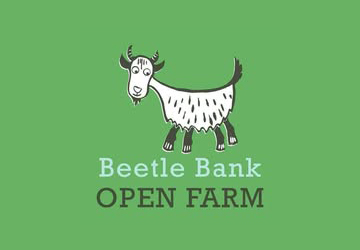With the festive season just around the corner and Black Friday offering the chance to snap up some pre-Christmas deals, Humberside Police is raising awareness about the latest tricks and methods that fraudsters may use.
In the three months leading up to Christmas last year, £46.6k was reported as lost to online shopping fraud. With the average loss per victim being £310.
The force is sharing 12 festive frauds:
1. 🛍️ Online Shopping Fraud
Fraudsters can be incredibly convincing, often using websites and adverts that look legitimate, it is important that you take your time when shopping online and do not act too quickly, even when rushed by flash limited time sales that incite a fear of missing out
To shop safely always:
- Choose carefully where you shop – ensure you double check the website’s URL for spelling mistakes
- Ensure you check the validity of any links that businesses may have sent you directly to your email.
- Use a credit card for online payments
- Only provide enough details to complete your purchase
- Keep your accounts secure and don’t use the same password for everything!
2. 📦 Courier Fraud
Also known as impersonation fraud, courier fraud involves scammers posing as police or bank officials.
Scammers may call you posing as a trusted organisation asking you for money or high value items, which they claim will be collected by a courier.
The police will never call you asking for your PIN by phone or offer to pick up your bank cards, additionally the police will never send a courier to your home to collect bank cards, cash or other valuable items.
3. 💛 Romance/Befriending Fraud
Criminals are experts at impersonating people. They spend hours researching you for their scams, especially when committing romance fraud.
Scammers often target vulnerable people online, they build a relationship through messaging platforms and subsequently ask for money for a variety of reasons.
We urge you to inform your family members of this scam this festive season, ask them who they talk to online and ensure they are protected from befriending fraud.
4. 👨💻 Remote Access Scams
📲 Millions of pounds has been lost to scams that involved criminals remotely connecting to a victim’s computer.
Criminals may pose as your bank or other official organisation informing you that there is an issue with an online service and that they can fix this remotely.
⚠️Never allow remote access to your computer following an unsolicited call, text message or browser pop-up. It’s probably a scam.
If you receive a call of this nature, hang up and contact the organisation directly, ideally from a different device using a verified phone number.
5. 📧 Phishing Scams
🤔 Received a suspicious message that you’re unsure about?
Fraudsters can pose as companies and send malicious links online and over text, these links often prompt you to type in your personal data which is collected by the scammers. To protect yourself follow the below to spot phishing attempts:
- Check the email address – is it the company they’re saying they’re from? If they’re mismatched email domains, then it’s probably a scam.
- Hover over any links – do they go where they say they should?
- Bad spelling and grammar, or unfamiliar language
- Do not click ‘log on’ links from an email – find the legitimate login page through your search engine
- Do not open emails that appear ‘too good to be true’.
6. 🌟 Competition scams
Scammers may send you fake messages claiming you have won a competition; they may then ask for your personal information to send you your ‘prize’.
These fake messages can be difficult to spot, and criminals put in a lot of effort to make their communication look legitimate so it’s important to take your time and not act too quickly.
7. 📦 Parcel Delivery Scams Fraud
Criminals may send you texts about deliveries that you ‘missed’ or to track an order that you did not place. Always ensure you access order tracking platforms through trusted websites, and do not trust messages from unknown numbers that may text you.
8. 💷 Investment Fraud
Investment fraud is where criminals will present professional and credible looking online adverts, send emails, and create websites to advertise fake investment opportunities.
These scams can affect both new and experienced investors. Fraudsters are impersonating the websites of real firms offering investments in stocks, cryptocurrency, and ISA’s.
9. 🎫 Ticket Fraud
Ticket fraud involves scammers selling illegitimate tickets to often sold out events. The scarcity of these tickets make their offer incredibly enticing. Do not purchase tickets online from unknown social media accounts
Only buy tickets from the venue’s box office, official promoter or agent, or a well-known and reputable ticket site.
10. 🤲 Charity Fraud
🤔 Are you donating to charity this Christmas? Don’t let your money end up in a criminal’s pocket.
The risk of fraud should not put you off giving to charities but should be vigilant and make sure you are giving safely.
11. 🐾 Pet Fraud
Ensure you take time and care this festive season before buying a pet online!
⚠️Do your research
⚠️Trust your instincts
⚠️Choose your payment method wisely
Don’t get caught out by those puppy dog eyes!
12. 🏖️ Holiday Fraud
As we approach the new year you may be dreaming about your next holiday in the sun, weather this be to escape the ice-cold winter or planning in preparation for a summer break bear in mind where you are shopping.
Don’t be tempted by too good to be true deals on flights and accommodation, if something sounds too good to be true it probably is!
If you believe you have been a victim of fraud, call 101 to report it to police or alternatively report it to Action Fraud online here www.actionfraud.police.uk
Visit fraudwatch.org.uk for more information about fraud and where to get support. You can also sign up to receive future alerts at alerts.fraudwatch.org.uk









































